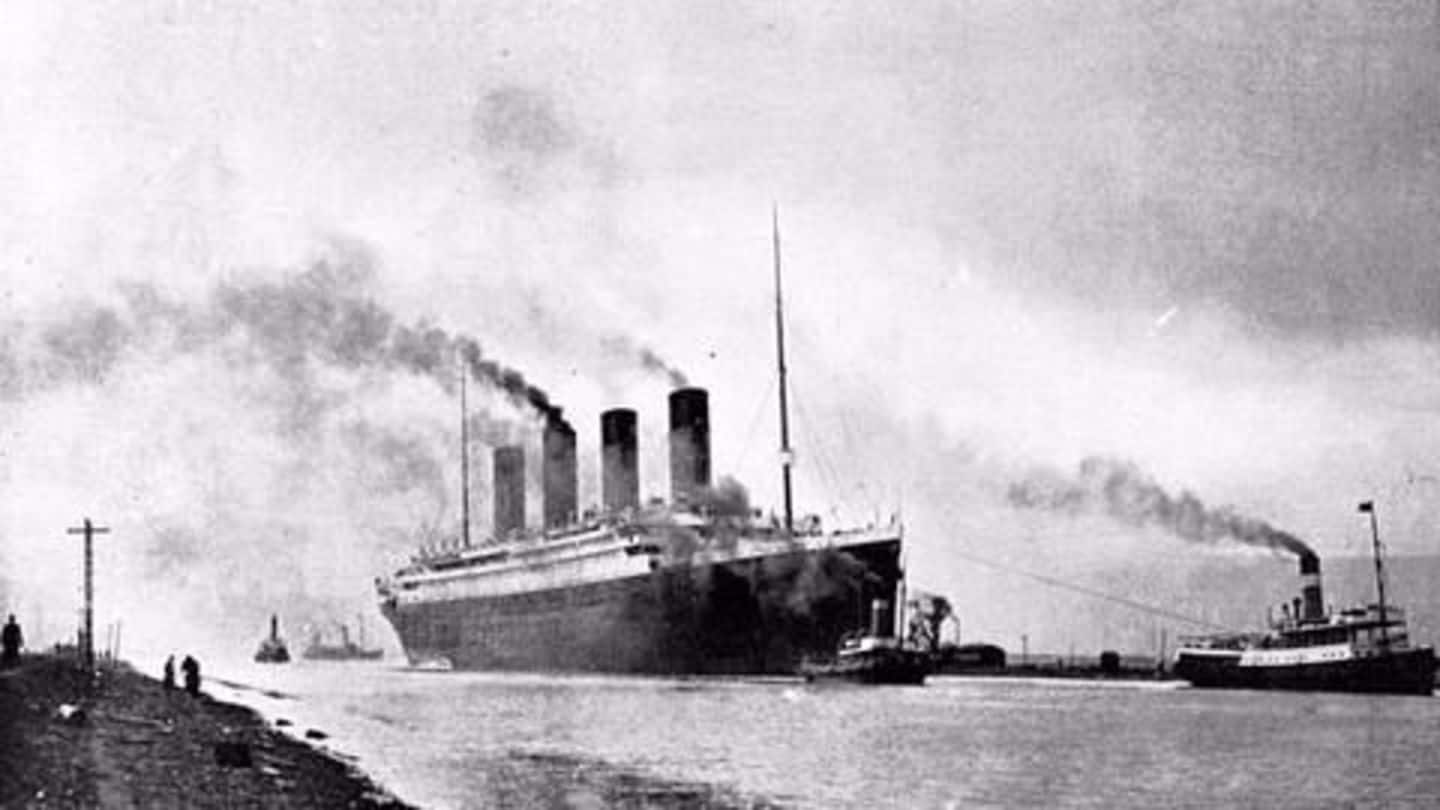
New evidence suggests that the Titanic sank due to fire
What's the story
In a recent Channel 4 documentary, titled "Titanic: The New Evidence", journalist Senan Molony presented evidence to support a theory which suggests that the Titanic sank, not because it hit an iceberg, but because of a massive fire onboard.
While experts had previously acknowledged the theory of an onboard fire, recent evidence suggests that the primary cause of sinking was the fire.
Quote
The Titanic sank due to fire, ice and criminal negligence
"This isn't a simple story of colliding with an iceberg and sinking. It's a perfect storm of extraordinary factors coming together: fire, ice and criminal negligence," said Molony.
Evidence
Molony's evidence to support the fire theory
Molony, who has spent over 30 years researching the demise of the Titanic, studied photographs taken by Titanic's chief engineers before the ship left Belfast.
Upon doing so, he found 30-foot long black marks along the right side of the ship's hull.
Subsequently, experts confirmed that the marks were caused by a massive coal fire which started behind one of the ship's boiler rooms.
Do you know?
Keeping the fire a secret
Reportedly, officers aboard the Titanic were strictly instructed by J Bruce Ismay, the president of the company that built the Titanic, to never share the news of the fire with the ship's 2,500 passengers.
Investigation
So how did the fire lead to the Titanic's demise?
Molony's team investigated the area of the Titanic where the iceberg struck and found signs of weakness in the hull.
Combined with the evidence of the fire, which researchers say may have burnt unnoticed for up to 3 weeks, Molony posited that temperatures that high reduces the strength of steel by 75%.
Consequently, upon colliding with the iceberg, the Titanic's lining was torn open.
Quote
The area of investigation
"We are looking at the exact area where the iceberg stuck, and we appear to have a weakness or damage to the hull in that specific place, before she [the Titanic] even left Belfast," said Moloney.
Criticism
Some experts disagree with Molony's theory
Disagreeing with Molony, David Hill, a former honorary member of the British Titanic Society, who has, since 1950, studied the Titanic's demise, argued that while the massive fire may have hastened the Titanic's end, it was not the causal factor.
Hill said that, fire or not, the sheer scale of the damage caused by the iceberg would have sunk the Titanic anyway.